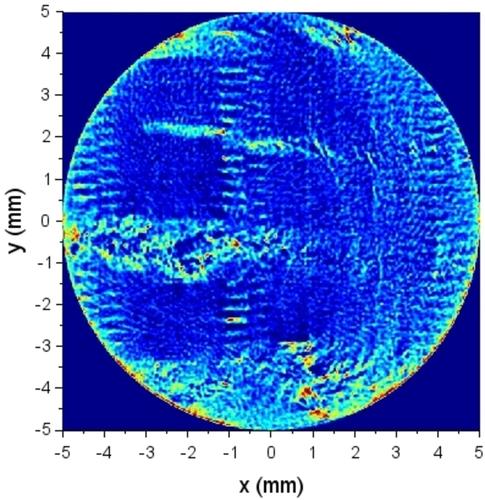Grazing-Incidence Texture Tomography and Diffuse Reflectivity Tomography of an Organic Semiconductor Device Array**
IF 3.6
Q1 CHEMISTRY, MULTIDISCIPLINARY
Chemistry methods : new approaches to solving problems in chemistry
Pub Date : 2022-06-23
DOI:10.1002/cmtd.202200016
引用次数: 0
Abstract
The use of grazing-incidence scattering methods for the characterization of 2D patterned organic thin films is limited due to the elongated 1D footprint of the X-ray beam on the sample. However, this characteristic feature can be turned into an advantage, when combined with tomographic reconstruction. In this pilot study we show, how the use of a chosen texture reflection and a diffuse reflectivity signal can each provide 2D images of the deposits, simultaneously revealing the organic film's crystal orientation and the location of the metal electrodes in a field-effect transistor structure from a single sequence of diffraction images.

有机半导体器件阵列的掠入射纹理层析成像和漫反射层析成像**
由于x射线束在样品上的1D足迹拉长,使用掠入射散射方法表征二维图案有机薄膜受到限制。然而,当与层析成像重建相结合时,这一特征可以转化为优势。在这项初步研究中,我们展示了如何使用选定的纹理反射和漫反射信号分别提供沉积物的二维图像,同时从单一序列的衍射图像中揭示有机薄膜的晶体方向和场效应晶体管结构中金属电极的位置。
本文章由计算机程序翻译,如有差异,请以英文原文为准。
求助全文
约1分钟内获得全文
求助全文
来源期刊
CiteScore
7.30
自引率
0.00%
发文量
0

 求助内容:
求助内容: 应助结果提醒方式:
应助结果提醒方式:


